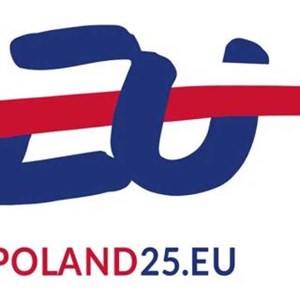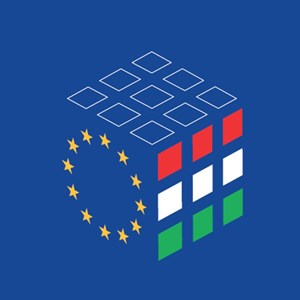Brussels 20 March 2020 - In response to the coronavirus outbreak, CEN, the European Committee for Standardization, and CENELEC, the European Committee for Electrotechnical Standardization, agreed, in collaboration with all their Members and after the urgent request from the European Commission, to make freely available a series of European standards (ENs) for medical devices and personal protective equipment used in the context of the COVID-19 pandemic.
This exceptional decision is motivated by the need to tackle the severe shortage of protective masks and medical equipment experienced all around Europe due to the exponential growth of the COVID-19 emergency. The standards will enable a quicker and smoother access to market of new fundamental medical and protection equipment.
Providing free access to the national adoptions of this set of European standards facilitates the work of the many companies within the European Economic Area which are reconverting their production lines to deliver tangible results quickly and ensure that healthcare professionals and patients have access to the equipment they urgently need.
The 11 standards developed by CEN and potentially 3 additional ones developed jointly with ISO made available cover common filtering masks, medical gloves and protective clothing. They are the fruit of a collective European effort. These European standards were developed and adopted by different Technical Bodies, taking into account the contributions of hundreds of experts and stakeholders in the personal protective equipment and medical field all around Europe.
The standards are available for free download from the websites of CEN national members.
Thierry Breton, European Commissioner for the Internal Market, saluted the initiative: “In our battle against the coronavirus we need to act with urgency, solidarity and in a coordinated manner. We need audacity and innovative ways of producing the equipment we need. I am encouraging manufacturers to evaluate the possibilities of increasing and diversifying production, building on positive examples such as textile and shoe manufacturers starting to produce masks and gowns. I will do everything possible to support their efforts. I am pleased to announce that following contacts with the Commission, today CEN and CENELEC agreed to make freely available the standards needed for such companies to be able to produce masks and other protective equipment. This agreement has immediate effect.”
Vincent Laflèche, CEN President, commented: “Due to the coronavirus pandemic, we are living unprecedented circumstances which require exceptional measures. By making a set of standards available for free, the European standardization community is committed to help the European Commission in its effort to build the first common European reserve of emergency medical equipment (RescEU)”.
Dany Sturtewagen, CENELEC President, added: “European standards play a crucial role in ensuring the availability of key medical devices and personal protective equipment. This extraordinary step is in line with the key drivers of our European standardization work: inclusiveness and unity. I salute the reaction of solidarity and commitment from our Members to support the global fight against COVID-19”.
The list of the standards follows:
- EN 149:2001+A1:2009 Respiratory protective devices – Filtering half masks to protect against particles - Requirements, testing, marking (commonly referred to as ‘FFP masks’)
- EN 14683:2019 Medical face masks - Requirements and test methods
- EN 166:2001 Personal eye-protection – Specifications
- EN 14126:2003/AC:2004 Protective clothing - Performance requirements and tests methods for protective clothing against infective agents
- EN 14605:2005+A1:2009 Protective clothing against liquid chemicals - performance requirements for clothing with liquid-tight (Type 3) or spray-tight (Type 4) connections, including items providing protection to parts of the body only
- EN 13795-1:2019 Surgical clothing and drapes - Requirements and test methods - Part 1: Surgical drapes and gowns
- EN 13795-2:2019 Surgical drapes, gowns and clean air suits, used as medical devices for patients, clinical staff and equipment - Part 2: Test methods
- EN 455-1:2020 Medical gloves for single use - Part 1: Requirements and testing for freedom from holes (MDD)
- EN 455-2:2015 Medical gloves for single use - Part 2: Requirements and testing for physical properties (MMD)
- EN 455-3:2015 Medical gloves for single use - Part 3: Requirements and testing for biological evaluation (MDD)
- EN 455-4:2009 Medical gloves for single use - Part 4: Requirements and testing for shelf life determination (MDD)
In addition, upon CEN’s request the following EN ISO standards are made available as read-only:
- EN ISO 374-5:2016 Protective gloves against dangerous chemicals and micro-organisms - Part 5: Terminology and performance requirements for micro-organisms risks
- EN ISO 13688:2013 Protective clothing - General requirements
- EN ISO 10993-1:2009/AC:2010 Biological evaluation of medical devices - Part 1: Evaluation and testing within a risk management process
Furthermore, on 2 April ISO and IEC decided to make a list of additional standards available, in read-only access. The full lists of standards made available can be found at the links below:
Download the Press Release (PDF format)
- Read the Press Release of the European Commission:
20 March 2020 - Coronavirus: European standards for medical supplies made freely available to facilitate increase of production
25 March 2020 - Coronavirus: harmonised standards for medical devices to respond to urgent needs
-
Read the news on the websites of our National Members and Affiliates:
AFNOR: https://www.afnor.org/actualites/masques-de-protection-normalisateurs-initiatives-face-au-coronavirus/
ASI: https://www.austrian-standards.at/infopedia-themencenter/infopedia-artikel/coronavirus/
ASRO: https://www.asro.ro/pachet-standarde-covid-19/#more-11683
BDS: https://www.bds-bg.org/bg/pages/page_3772.html; https://www.bds-bg.org/bg/pages/page_3774.html
BSI: https://www.bsigroup.com/en-GB/about-bsi/media-centre/press-releases/2020/march/bsi-makes-european-standards-for-medical-devices-and-ppe-available/
CYS: https://www.linkedin.com/posts/cyprus-organisation-for-standardisation-cys-_cystandards-cencenelec-stopcovid19-activity- 6647082344324845568-pKFV/
DIN: https://www.din.de/de/din-und-seine-partner/presse/mitteilungen/covid-19-din-stellt-normen-fuer-medizinische-ausruestung-zur-verfuegung-708596
DS: https://www.ds.dk/da/nyhedsarkiv/2020/3/standarder-for-medicinsk-beskyttelsesudstyr-stilles-gratis-til-raadighed
ELOT: http://www.elot.gr/1487_ELL_HTML.aspx
EVS: https://www.evs.ee/et/seoses-covid-19-pandeemiaga-on-osad-isikukaitse-ja-meditsiiniseadmete-standardid-tasuta-alla-laetavad
HZN: https://www.hzn.hr/default.aspx?id=1875
ILNAS: https://portail-qualite.public.lu/fr/actualites/normes-normalisation/2020/mise-a-disposition-gratuite-normes-europeennes-dispositifs-de-protection.html
IPQ: http://www1.ipq.pt/PT/Site/Destaques/Pages/2020/Normas_EPI_COVID19.aspx
ISRSM: http://www.isrsm.gov.mk/mk/news/news_4207.html
ISS: https://www.iss.rs/rs/news/news_521.html
IST: https://www.stadlar.is/thjonusta/nyjustu-frettir/stadlamal-frettabref-stadlarads/2020/03/covid-19-stadlar-um-personuhlifar-adgengilegir.aspx
LST: http://www.lsd.lt/index.php?-765820687
LVS: https://www.lvs.lv/news/214
MCCAA: https://forms.mccaa.org.mt/index.php?r=survey/index&sid=698461&lang=en
MSZT: https://prod.mszt.hu/hu-hu/szabvanyositas/hirek/2020/03/hirdetmeny
NBN: https://www.nbn.be/nl/nieuwsberichten/gratis-normen-voor-mondmaskers
NEN: https://www.nen.nl/NEN-Shop/Nieuws-Medische-hulpmiddelen/Normen-voor-persoonlijke-beschermingsmiddelen-en-medische-hulpmiddelen.htm
NSAI: https://www.nsai.ie/about/news/eu-standards-for-medical-supplies-made-freely-available/
PKN: https://sklep.pkn.pl/pn
SFS: https://www.sfs.fi/ajankohtaista/uutiset/standardit_tarkea_tyokalu_koronaviruksen_torjunnassa.5369.news
SIS: https://www.sis.se/nyheter-och-press/pressmeddelanden/standarder-om-skyddsutrustning-tillgangliggors-kostnadsfritt/
SIST: http://www.sist.si/image/catalog/DOWNLOAD/OBJAVE/2020/Standardi-zascita-COVID-19_1.pdf
SN: https://www.standard.no/fagomrader/helse-og-omsorg/medisinsk-utstyr/standarder-for-smittevern/
SNV: https://www.snv.ch/en/about-us/news-portal/news-details/information-from-the-snv-head-office-regarding-covid-19-coronavirus.html
TSE: https://www.tse.org.tr/Icerik/HaberDetay?HaberID=15861
UNE: https://www.une.org/la-asociacion/sala-de-informacion-une/noticias/une-facilita-el-acceso-gratuito-a-sus-normas-para-la-fabricacion-de-material-contra-el-coronavirus
UNI: https://www.uni.com/index.php?option=com_content&view=article&id=9216:emergenza-covid-19-a-disposizione-le-norme-uni-per-combattere-il-contagio&catid=171&Itemid=2612
UNMS SR: https://www.unms.sk/?TS&sprava=docasne-bezodplatne-spristupnenie-suboru-vybranych-stn-pre-zdravotnicke-pomocky-a-osobne-ochranne-prostriedky
UNMZ: http://www.agentura-cas.cz/normy_zdravotnicke_ochranne_prostredky
DPS: http://www.dps.gov.al/button_114.html
ISBIH: http://www.bas.gov.ba/pages/page_6763.html
ISME: https://www.isme.me/news/133

Giovanni COLLOT
gcollot@cencenelec.eu



